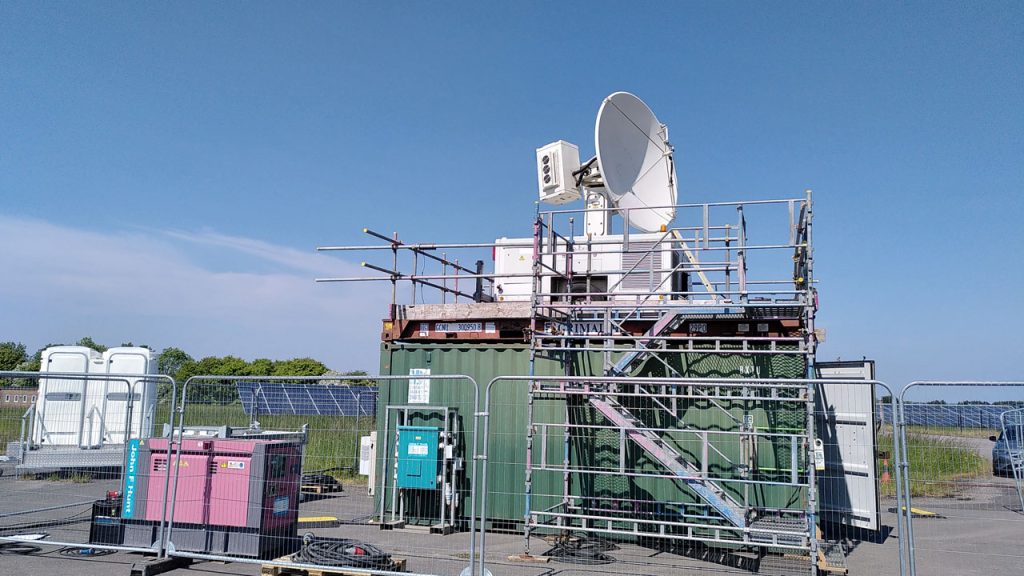
Scientists use biofuel to power storm-tracking weather radar for the first time
Scientists used biofuel-powered weather radar for the first time this summer, to observe stormy conditions in a more environmentally sustainable way.
A team of researchers led by the National Centre for Atmospheric Science (NCAS) have just completed a summertime observation campaign – known as *WOEST – focused on tracking turbulent processes in our atmosphere, with a view to improving forecasts of severe storms.
The world-leading team used a range of state-of-the-art technology to monitor the onset of thunderstorms in the south of England. They deployed a series of weather radars, weather balloons, unmanned aerial systems, cloud cameras, and an extensive network of ground based sensors – and joined forces with the Wessex Convection Experiment led by the UK Met Office that used NCAS’ FAAM Airborne Laboratory.
The team pioneered a novel approach, led by Dr Ryan Neely III, which saw two steerable weather radar set-up specifically to track and observe convective clouds at the same time that the FAAM Airborne Laboratory’s research aircraft flew overhead.
Researchers combined observations from every angle to help them describe turbulence in the atmosphere, and ultimately, will use the observations made this summer to improve how we predict the weather on a day-to-day basis.
Recognising that scientific activities have environmental impacts, the research team sought ways to minimise the impacts of using powered instruments.
The pair of steerable weather radar were powered by GreenD+ HVO biofuel generators for the first time, instead of diesel fuel sourced from crude oil, which reduced greenhouse gas emissions by up to 90%.
GreenD+ HVO, also known as Enhanced Hydrotreated Vegetable Oil, is a fossil-free paraffinic fuel made from 100% renewable raw materials. It is a more sustainable high quality fuel, which is suitable for diesel-powered vehicles and industrial powered generators. GreenD+ HVO is produced from waste fats and vegetable oils, and the fats are transformed into biofuel by hydrogenation.
*WOEST brought together the National Centre for Atmospheric Science, University of Leeds, University of Reading, University of Manchester, University of Oxford and Imperial College London.
